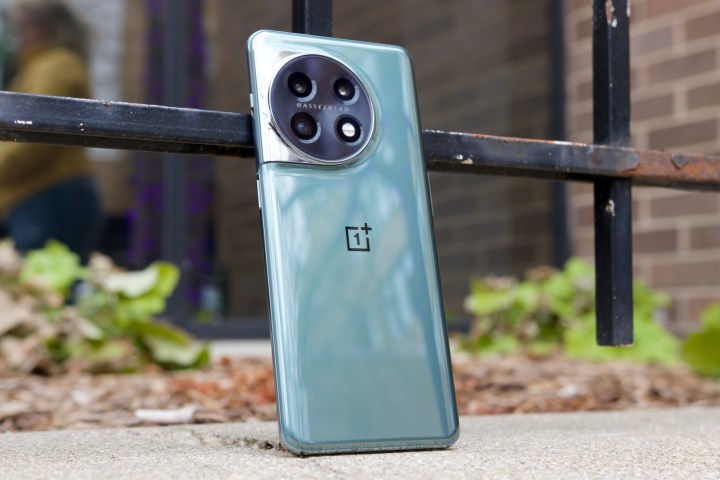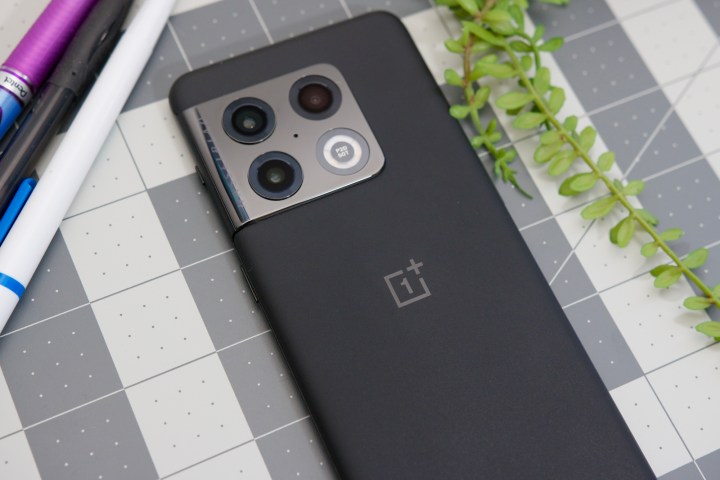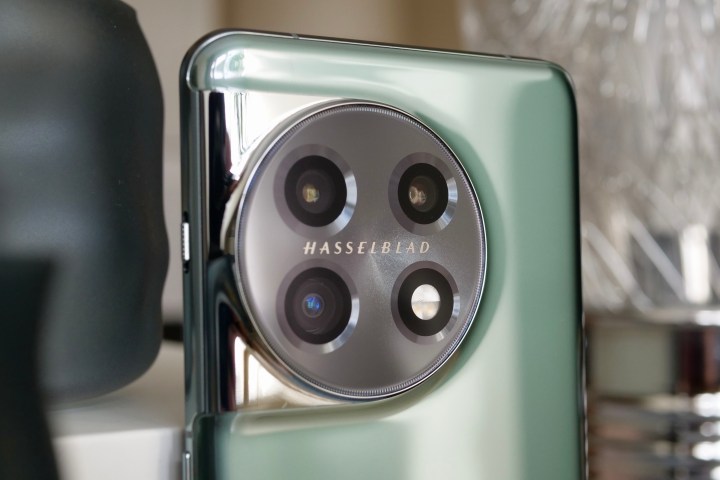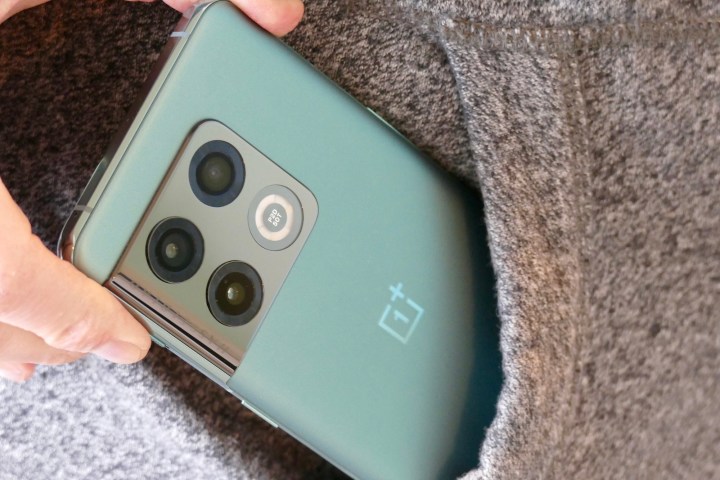The OnePlus 11 is the lone warrior from OnePlus in 2023. Unlike in previous years, there is no Pro model. The new smartphone is an interesting option at $699, especially when you can still find the OnePlus 10 Pro available for less cash.
If you are in the market for a new OnePlus flagship, should you go with the new OnePlus 11 or the year-old OnePlus 10 Pro? And if you still have a OnePlus 10 Pro, is the OnePlus 11 a worthy upgrade? Here’s what you need to know before making that decision.
OnePlus 11 vs. OnePlus 10 Pro: specs
| OnePlus 10 Pro | OnePlus 11 | |
| Size |
163 x 73.9 x 8.6 mm |
163.1 x 74.1 x 8.53mm |
| Weight | 201 grams | 205 grams |
| Display | 6.7-inch AMOLED | 6.7-inch AMOLED |
| Screen resolution |
3216 x 1440 pixels (525 pixels per inch) |
3216 x 1440 pixels (525 pixels per inch) |
| Screen refresh rate | 1Hz to 120Hz | 1Hz to 120Hz |
| Operating system | Upgradable to Android 13, OxygenOS 13 | Android 13, OxygenOS 13 |
| Storage space | 128GB, 256GB | 128GB, 256GB |
| MicroSD card slot | No | No |
| Processor | Qualcomm Snapdragon 8 Gen 1 | Qualcomm Snapdragon 8 Gen 2 |
| RAM | 8GB, 16GB | 8GB, 16GB |
| Camera | 48-megapixel main, 50MP ultrawide, 8MP telephoto rear, 32MP front |
50-megapixel main, 48MP ultrawide, 32MP Portrait Tele Cam, 16MP front |
| Video | 8K at 24 frames per second, 4K at 30/60/120 fps, 1080p at 30/60/240 fps | 8K at 24 frames per second, 4K at 30/60/120 fps, 1080p at 30/60/240 fps |
| Bluetooth version | Bluetooth 5.2 | Bluetooth 5.3 |
| Ports | USB-C 3.1 | USB-C 2.0 |
| Fingerprint sensor | Yes, in-display | Yes, in-display |
| Water resistance | Yes (IP54) | Yes (IP64) |
| Battery | 5,000mAh | 5,000mAh |
| Wired charging | Up to 80W in the US, 100W international | Up to 80W |
| Wireless charging | Yes, up to 65W | No |
| App marketplace | Google Play Store | Google Play Store |
| Colors | Volcanic Black, Emerald Forest | Titan Black, Eternal Green |
| Price | $599 | $699 |
| Buy from | OnePlus, Amazon, Best Buy | OnePlus, Amazon, Best Buy |
| Review | OnePlus 10 Pro review | OnePlus 11 review |
OnePlus 11 vs. OnePlus 10 Pro: design and display
- 1. OnePlus 11
- 2. OnePlus 10 Pro
The OnePlus 11 is a tad bit heavier at 205 grams than the OnePlus 10 Pro, which weighs 201 grams. However, you won’t feel the difference since both phones feature curved edges, which make the devices easier to hold than flat-edged flagships. Both of them use the same material – Gorilla Glass Victus on the front, Gorilla Glass 5 on the back, and an aluminum frame. The in-hand feel remains premium on the new OnePlus 11, just like it was on the OnePlus 10 Pro.
The one major design change comes in the form of the camera module. Instead of a square module, OnePlus has made the three-camera array circular. Some people will prefer how the OnePlus 11’s camera looks, while others will prefer the OnePlus 10 Pro. It really comes down to personal preference. Both phones also have OnePlus’s iconic alert slider.
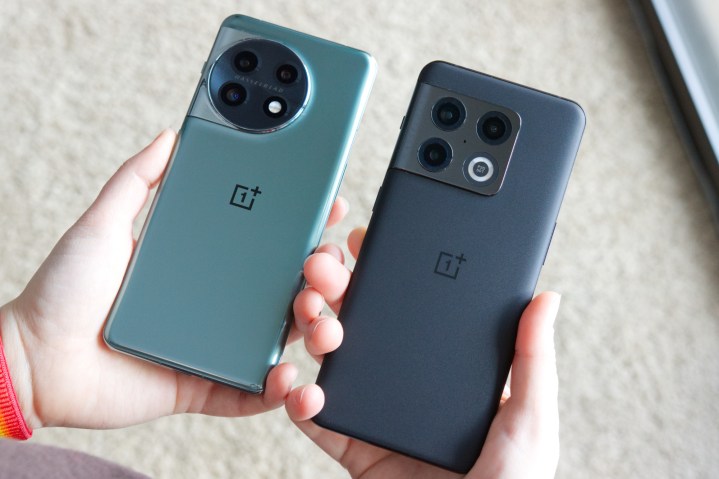
Both devices deliver a 6.7-inch AMOLED display with support for a 120Hz refresh rate, Dolby Vision, HDR10+, and up to 1,300 nits peak brightness. The difference comes in the type of display. The OnePlus 11 sports an upgraded LPTO 3 panel, while the OnePlus 10 Pro comes equipped with an LTPO 2 display panel. You won’t notice much of a difference in display quality because the new tech is focused on better power consumption while delivering a 1Hz to 120Hz refresh rate. The resolution remains the same as well, at 1440 x 3216 pixels.
It’s not by much, but thanks to the upgraded display tech, the OnePlus 11 edges out the win here.
Winner: OnePlus 11
OnePlus 11 vs. OnePlus 10 Pro: performance and battery
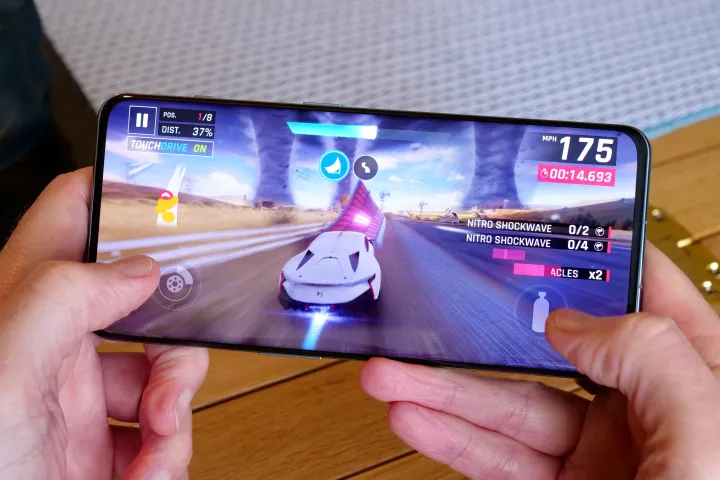
The OnePlus 11 is powered by the Qualcomm Snapdragon 8 Gen 2 processor, instead of the Snapdragon 8 Gen 1 found on the OnePlus 10 Pro. While both the chipsets are based on a 4nm process, the latest processor is much more power efficient and delivers more power on paper. Plus, the Adreno 740 GPU will give you a better gaming experience than the Adreno 730 GPU found on the OnePlus 10 Pro’s chip.
The OnePlus 11 comes in two variants: 8GB RAM with 128GB of UFS 3.1 storage, and 16GB RAM with 256GB of UFS 4.0 storage. The latter delivers better speeds, but you are unlikely to notice the difference in day-to-day use. On the other hand, the OnePlus 10 Pro has the same amount of storage, but with UFS 3.1 standard. That means you could notice a difference in data transfer speeds if you connect an OTG adapter, seeing that the OnePlus 11 comes with a USB Type-C 2.0 port instead of the USB Type-C 3.1 port.
Both smartphones pack a 5,000mAh battery in the form of two 2,500mAh cells. While the OnePlus 11 supports 100-watt wired charging internationally, the U.S. variant supports 80W charging, which is the same as the OnePlus 10 Pro. Unfortunately, you miss out on wireless charging in the OnePlus 11.
Winner: OnePlus 11
OnePlus 11 vs. OnePlus 10 Pro: camera
- 1. OnePlus 11
- 2. OnePlus 10 Pro
The OnePlus 11 sports a 50MP primary camera, instead of the 48MP found on the OnePlus 10 Pro. It is likely to deliver better results thanks to updated software processing for the new sensor. Daylight images have a good dynamic range, and the lowlight pictures deliver above-average results as well. The below gallery offers an example of what the OnePlus 11’s camera system is capable of.
It is accompanied by an upgraded 32MP telephoto shooter, as compared to the 8MP camera found on the OnePlus 10 Pro. Despite the better resolution, you get only 2x optical zoom, which is a downgrade from the 3.3x optical zoom available on last year’s flagship. The primary and telephoto cameras support optical image stabilization, unlike the 48MP ultrawide-angle lens on the latest phone. Both devices are capable of recording up to 8K at 24 frames per second (fps).
OnePlus has also decided to downgrade the megapixel count on the selfie shooter. You get a 16MP front camera on the OnePlus 11 instead of the 32MP front shooter on the OnePlus 10 Pro.
Despite the technical downgrades with the optical zoom and front-facing camera MP count, it’s clear OnePlus has made considerable improvements with overall camera performance on the OnePlus 11. As Digital Trends’ Andy Boxall says in our OnePlus 11 review, “This is the first time I’ve used a Hasselblad-tuned camera phone, and actually thought it has made a difference to the colors in my photos.”
Winner: OnePlus 11
OnePlus 11 vs. OnePlus 10 Pro: software

The OnePlus 10 Pro came preinstalled with Android 12, which is upgradable to Android 13-based OxygenOS 13. It will still receive a couple of more updates. However, the OnePlus 11 comes with Android 13 out of the box, and it is eligible for four years of major OS upgrades and five years of security patches.
That means, the OnePlus 11 will last you two years longer than the OnePlus 10 Pro if you purchase it now. It will receive OS upgrades until 2026 and security patches until 2027.
Winner: OnePlus 11
OnePlus 11 vs. OnePlus 10 Pro: price and availability
The OnePlus 11 costs $699 for the base 8GB RAM and 128GB storage variant; it will set you back at $799 for 16GB RAM and 256GB storage. On the other hand, the OnePlus 10 Pro is still available direct from OnePlus’s website at a discounted price of $599.
Overall winner: OnePlus 11
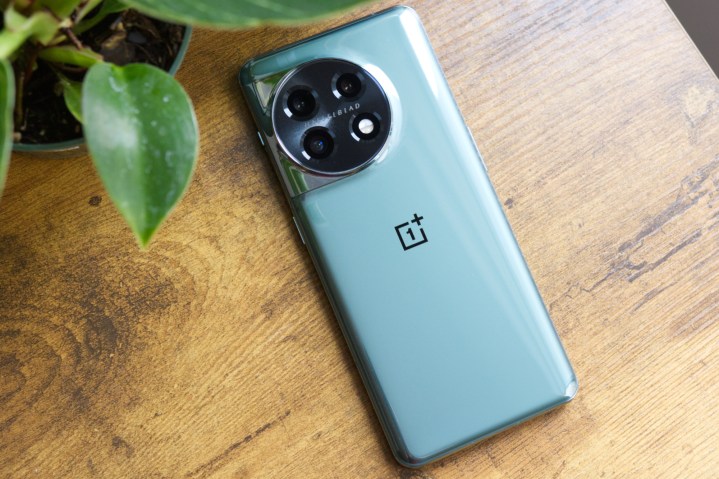
With a better chipset comes improved power efficiency, which means you get more hours of usage from the OnePlus 11 than the OnePlus 10 Pro. It also comes with faster overall performance, arguably better cameras on the back, and four years of major OS upgrade support.
If you are in the market for a new phone around the $700 mark, the OnePlus 11 is the better option because it offers upgraded performance, battery life, software support, and rear cameras. However, if you are on a tight $600 budget, the OnePlus 10 Pro should be your preference — but be aware that it will last you two years less than the OnePlus 11.
What if you already own the OnePlus 10 Pro? It remains an excellent device in 2023 and should serve you well for another year or two without fault. Don’t feel like you need to rush out and upgrade to the OnePlus 11 immediately. But if your OnePlus 10 Pro is giving you battery problems, or you’re running into performance qualms, the OnePlus 11 is a safe and easy upgrade recommendation.
Editors’ Recommendations
Services Marketplace – Listings, Bookings & Reviews
